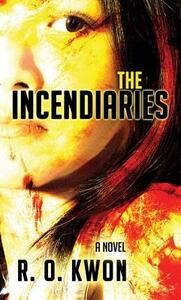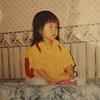You need to sign in or sign up before continuing.
Take a photo of a barcode or cover
Fascinating prose and sentence structures. The flow of Kwon’s writing is very unique and interesting. While it’s technically 3 POVs, I would say it’s more so Will’s interpretation of other POVs. Phoebe’s character is very much developed the way Will understands and perceives Phoebe, which I’m conflicted about.
Either way, I find any story with cults utterly fascinating as someone who is not religious and never grew up religious.
Either way, I find any story with cults utterly fascinating as someone who is not religious and never grew up religious.
I liked the way this story evolved as it became more clear how unreliable all the narrators were, but especially Will. This was the type of book I wouldn’t rush to get back to, but every time I picked it up I would quickly find myself drawn in.
Trying to figure out why I don’t love this book. I picked up and put down multiple times and finally finished it. Multiple aspects of this novel appeal to me - cults, APA diverse experiences, college, culture and identity questions. Even a hapa lead. But for some reason I found the characters kind of appalling and unlikable. The writing was fine. I just didn’t like the people.
I really don’t know how I feel about this book about two people and their relationship and their connection to bombings.
The writing style is weird, flat and abrupt, which kept me off balance as the author takes us through Will’s and Phoebe’s perspectives of themselves. Will meets Phoebe at college after transferring from a bible college, while Phoebe seems bent on making unhealthy choices after rejecting becoming a pianist. The author switches points of view between the two characters and we find out Phoebe is grieving over her mother’s death, while Will is grieving over his loss of faith, and becoming obsessed with Phoebe. During their relationship, Phoebe introduces Will to John Leal, who claims he spent time in a North Korean prison camp, and preaches now to a small group.
Over the course of Will’s and Phoebe’s relationship, we see how Phoebe grows closer to Leal and his group, while Will and she grow apart.
It was interesting watching how John exerted control over grieving and increasingly self-destructive Phoebe. It was difficult to care for anyone in the story. And as we spend most of our time in Will’s head, it’s hard to say who and what Phoebe was and whether she was entirely involved with the actions of Leal’s group. And it’s interesting how Will replaces his belief in god with an obsession for Phoebe.
I am left with a “huh?” and somewhat disturbed feeling about this book.
The writing style is weird, flat and abrupt, which kept me off balance as the author takes us through Will’s and Phoebe’s perspectives of themselves. Will meets Phoebe at college after transferring from a bible college, while Phoebe seems bent on making unhealthy choices after rejecting becoming a pianist. The author switches points of view between the two characters and we find out Phoebe is grieving over her mother’s death, while Will is grieving over his loss of faith, and becoming obsessed with Phoebe. During their relationship, Phoebe introduces Will to John Leal, who claims he spent time in a North Korean prison camp, and preaches now to a small group.
Over the course of Will’s and Phoebe’s relationship, we see how Phoebe grows closer to Leal and his group, while Will and she grow apart.
It was interesting watching how John exerted control over grieving and increasingly self-destructive Phoebe. It was difficult to care for anyone in the story. And as we spend most of our time in Will’s head, it’s hard to say who and what Phoebe was and whether she was entirely involved with the actions of Leal’s group. And it’s interesting how Will replaces his belief in god with an obsession for Phoebe.
I am left with a “huh?” and somewhat disturbed feeling about this book.
People with no experience of God tend to think that leaving the faith would be a liberation, a flight from guilt, rules, but what I couldn’t forget was the joy I’d known, loving Him.Eerie and unsettling. I went into this debut novel knowing very little about it and I'm wary of saying too much in this review. I'm not going to discuss any definite spoilers, but in some ways reading any reviews before the book may change the reading experience.
The Incendiaries accounts the slow unraveling and descent of college student Phoebe from failed piano prodigy to a radicalised reglious extremist, mostly through the eyes of her boyfriend, Will. You know the result of Phoebe's descent within the first few pages, so this is one of those book's where the question isn't "what happens" but "why". And even that question is never fully answered.
What is unusual about the book is how Kwon plays with narrative and perspective. Initially, it seems like the chapters are split between 3 different perspectives: Will, Phoebe and John Leal. In fact, Will is the only true narrator and it, and the other chapters are filtered through his perspective. These chapters are his imaginings of what he thinks the other characters are thinking or purely his second hand accounts. Will's narrow minded and increasingly obsessive nature mean his constructs of the other two characters cannot be trusted. By the end, the reader knows very little about either Phoebe or John Leal. The fact that at times the reader can never be too sure whether the "I" speaking is Will or not only adds to the confusion. Kwon also avoids using speech marks (a trend I usually dislike in contemporary fiction, but do think works here) making the reading experience all the more disorienting. In the chapters from "Phoebe"'s perspective, Kwon never lets you forget that this "Phoebe" is a construction of Will's imagination. It's unsettling and disturbing, and I wonder if Kwon meant to make use of this plot device as a way to imitate (and, consequently, bring attention to) the way that many males (writers or otherwise) distort and shadow the female perspective... Phoebe's lack of voice is troubling, but then again I think that was the point.
So I can see what Kwon was aiming to do with the perspective, and while I did find it very effective, I also still had my reservations with it. Personally, I don't think the chapters from "John Leal"'s perspective were necessary and they did disrupt the reading flow, in my opinion. The fact that most of them were so short only added to my feeling that they were superfluous.
Will's obsession with Phoebe is what really terrified me, and this must have been related to the book's key question on gaining and losing one's faith and religious beliefs. While Will is tormented by his recent loss of faith and, perhaps, finds his obsession for Phoebe as some kind of replacement for religion, Phoebe finds herself moving from faithlessness (or disinterest? or ambivalence?) to an increasingly radicalised religious view, perhaps as a coping mechanism, perhaps as a replacement to the structured life of practice for a young, promising musician. The sense of loss Will feels, the void in his life where religion once was, is made all the more painful as he observes Phoebe's transformation. This complex emotional struggle, and the contradictions and ironies surrounding it, are at the core of The Incendiaries.
In sum, an incredibly powerful and emotive debut, disturbing in more ways than one, and I am most definitely going to be looking out to whatever Kwon does next.
Fantastic, brilliant novel. The kind of book I'd love to dissect with friends. Disturbing and uncomfortable in a way that makes you think.
Disappointing; it had so much potential! This is the story of a young couple in college, the female half of which gets drawn into a cult. I was hoping that the book would focus on how she gets drawn in, the culture of the cult, and so on, but it's told from the boyfriend's perspective. And apparently he didn't have much insight into how it ended up happening. I'm glad I read it because it received positive press and I wanted to know the story, but in the end, I'm not sure why it received much positive press.
Not what I expected. Very interesting to only really get a view of things from Will’s perspective as his chapters were very long and John and Phoebe’s chapters were very short. I’m very glad we did not pick this for book club!
Poignant and intriguing dive into the seductiveness of Christian cults. The characters could have used more depth and dimension—it flattened the emotion it was trying to evoke. Phoebe’s descent and Will’s desperation to save her… heart breaking but not tear jerking
Lesson learned. When a book is compared to The Secret History, now I know to avoid it because nothing can ever be as good as The Secret History so it’s impossible not to be severely let down. Phoebe and John Leal were not given enough time in the book and they were the only characters I wanted to know more about. Another reviewer mentioned how is it possible to make a bombing boring, and I completely agree. How is it possible for this book to be about such interesting topics yet be so incredibly boring.





